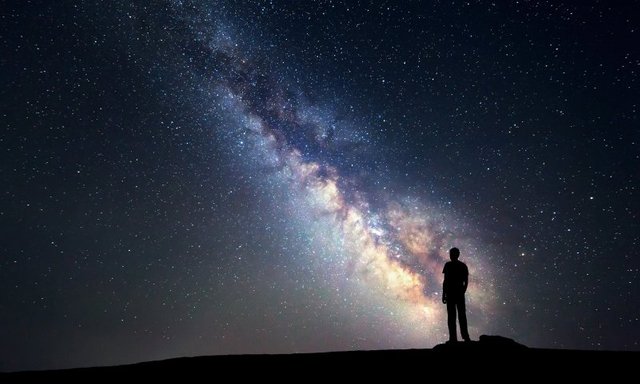Ears of an Astronomer: The Stars Above and Dangers Around
When the day ends and the sunlight becomes but a memory, our eyes become less important and hearing prevails. The days are also noisier with motors rumbling and people talking. The night is the time when the world goes to sleep and silence becomes more apparent. An astronomer that enjoys the beauties above his head becomes a man made of a pair of eyes and a pair of ears. With our sight occupied with monitoring the sky, our ears have to be on guard constantly. Who knows what beasts are hunting us while we are busy with astronomy?

Image Credit: Denis Belitsky
Our ears are instruments fine-tuned by evolution. Yes, we may be a little deaf compared to a dog or a bat, but we still can use our ears fairly efficiently especially when it matters. At the same time, our eyes could use an upgrade. We were slightly mistreated by the mother Nature. Let’s just list the disadvantages of our eyes:
- Adjustable but bad sensitivity in low light. Yes, we stumble upon things in the darkness.
- Intolerably ineffective color perception. We hardly can distinguish white from… another slightly different white.
- Vulnerable optic system. Some of us have to use glasses.
- Our eyes are pretty bad compared to our ears that are much more suited to be an ultimate instrument of survival. Maybe, we should rely on them more…
Sometimes, when I was wondering at the sky above, I would start hearing noises. Strange, unexplainable, weird, and mysterious. Due to my prowess in deduction, I was able to logically find the source. Basic calculations showed that the noises usually start after 1 or 2 hours of stargazing and suspiciously remind of human concerts that my neighbors love to watch in the evenings. Such a discovery simply cannot be made without perfect hearing! Do I hear the waves of Cosmos? Do my neighbors hear the messages from the above?
The noises produced by technology in urban areas are nor dangerous. The nature is far more menacing to a lone astronomer who has to be in the wilderness occasionally. Why do birds start their songs in the night? What did agitate them? What became a threat? A mouth full of pointy teeth? Should I be aware of an unknown predator hunting for a nonchalant prey? The nature is metal! The law of jungle prevails in the wilderness. We are but mere harmless and weak animals when it comes to blending with nature. When the downtown is far away, you stand in front of your eyepiece and hear nothing but silence. Sirens are way too far away to be heard, cars rarely pass by, and other urban sounds are absent here. Only a distant howl of a dog sometimes breaks the silence. When coyotes start joining their singing and suspicious noises from nearby bushes become apparent, one starts feeling a strong desire to pack his things and go home. Only to comply to his sleeping schedule of course.
Once I’ve met a mouth full of pointy teeth. It was a raccoon. I paused for a second moving my attention from the telescope to the sudden guest. We had a Mexican stand-off. I looked at it threatening, it looked at me bravely. Gladly, the one on top of the food chain eventually won. It was me, by the way.
There are other menacing animals out there. Crickets constantly make noises often messing up with our stargazing harmony. However, when Orion takes its place on the horizon, the fall takes the reigns of nature and crickets have to calm down and their noises disappear. The winter is less noisy, but some sounds make observing more practical and less dangerous for health. The more cracking sounds you hear, the stronger the snow under your feet and the colder you feel.
Once I was talking to a fellow astronomer and we were discussing our equipment. I was genuinely interested in his gear. Comparing equipment is something all astronomers love to do. However, he responded that during the crispy winter nights when the sky is clearer than ever he loves to use only his eyes.
I wanted to add “and ears”. As the nights were darker and colder, bears were wondering around and looking for an easy meal. With eyes better than ours and claws certainly bigger than our nails, they would definitely enjoy their sweet share of tasty astronomers served at midnight.